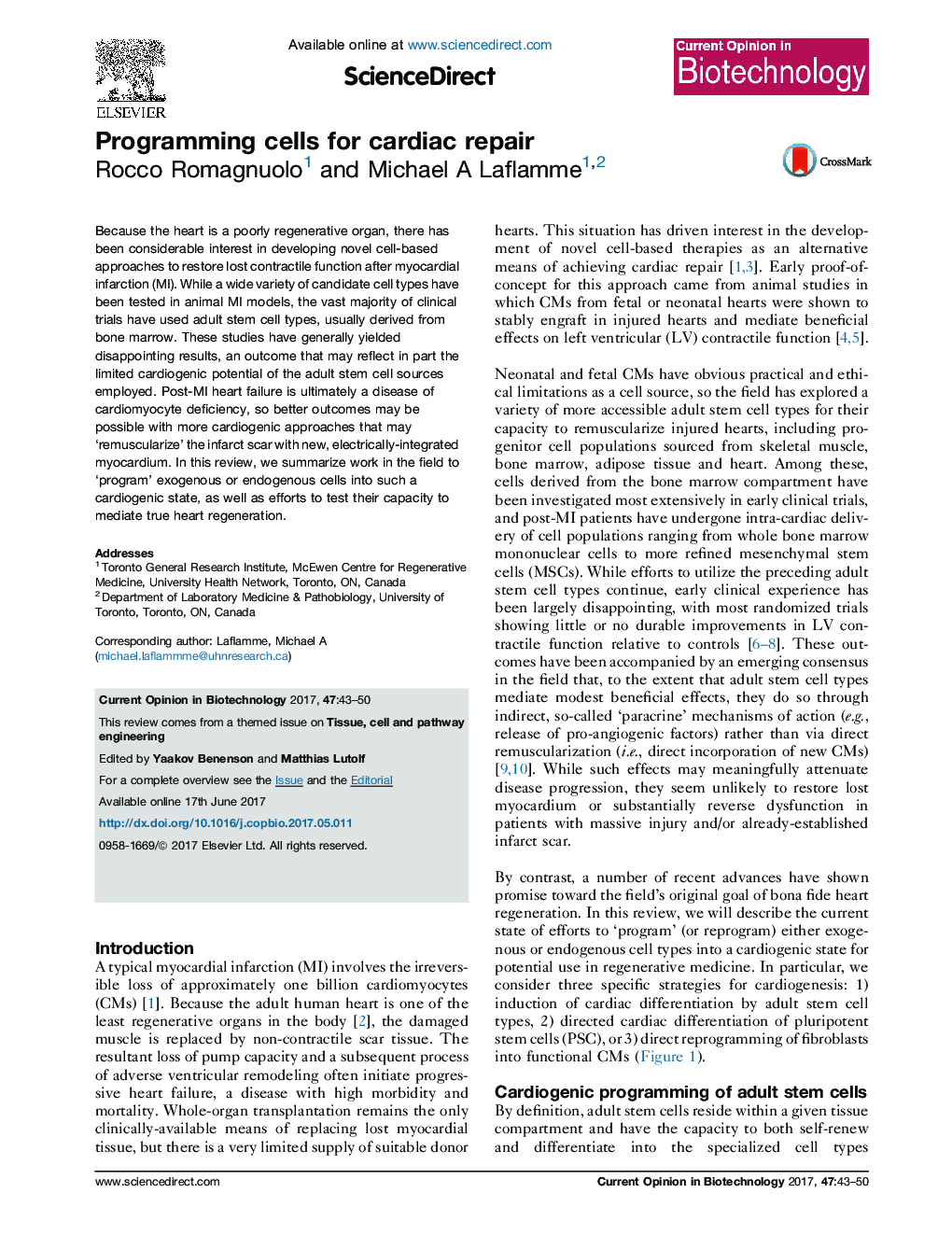| Article ID | Journal | Published Year | Pages | File Type |
|---|---|---|---|---|
| 6451421 | Current Opinion in Biotechnology | 2017 | 8 Pages |
â¢Adult stem cells have limited cardiomyocyte (CM) potential.â¢Pluripotent stem cells (PSCs) differentiate into CMs using defined factors.â¢Regenerative potential of PSC-CMs has been demonstrated in preclinical studies.â¢Fibroblasts can be reprogrammed into 'induced CMs' both in vitro and in vivo.
Because the heart is a poorly regenerative organ, there has been considerable interest in developing novel cell-based approaches to restore lost contractile function after myocardial infarction (MI). While a wide variety of candidate cell types have been tested in animal MI models, the vast majority of clinical trials have used adult stem cell types, usually derived from bone marrow. These studies have generally yielded disappointing results, an outcome that may reflect in part the limited cardiogenic potential of the adult stem cell sources employed. Post-MI heart failure is ultimately a disease of cardiomyocyte deficiency, so better outcomes may be possible with more cardiogenic approaches that may 'remuscularize' the infarct scar with new, electrically-integrated myocardium. In this review, we summarize work in the field to 'program' exogenous or endogenous cells into such a cardiogenic state, as well as efforts to test their capacity to mediate true heart regeneration.
Graphical abstractDownload high-res image (240KB)Download full-size image
